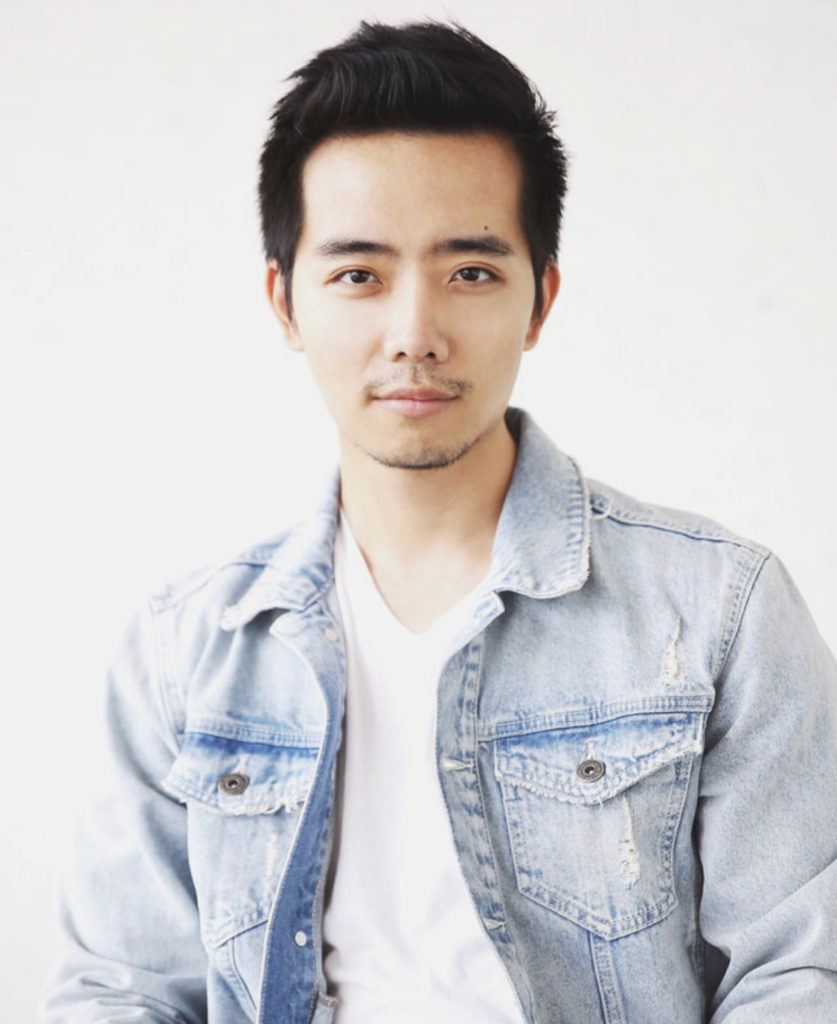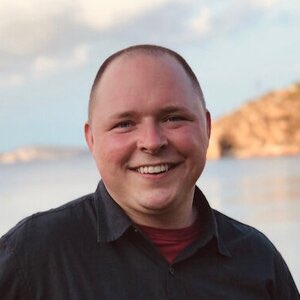Alumni Win Directing Fellowship, Screenwriting Competition
By Daryl Paranada, MFA ’19
A pair of Emerson alumni have been recognized for their directing and screenwriting talents. Hao Zheng ’15 was selected as one of 10 directors to participate in the 2020 HBOAccess Directing Fellowship. As part of the fellowship, Zheng will take part in a series of master classes with top industry speakers.
Rob Eckard ’10, MFA ’18, won the 30-minute Episodic Showtime Tony Cox Screenplay Competition at the Nantucket Film Festival. The competition recognizes emerging writers. As one of four winners, Eckard will receive a cash prize, a one-on-one consultation with Showtime, and be recognized in an online event that will feature excerpts from his winning screenplay. Dasha Fayvinova ’14 was named one of the finalists in the competition as well.

Hao Zheng
Hao, what compelled you to apply to the 2020 HBOAccess Directing Fellowship and how did you hear about it?
I’ve always wanted to get into TV directing, especially for HBO, as it has a brand of producing high-quality content. (I love Succession, Game of Thrones, and Band of Brothers). And what I love about TV is the longer format that allows us to build a large and often fantastical world that we can escape to, while at the same time still focusing on specific and personal emotions of multiple characters.
However, with so many great shows nowadays, I rarely see stories and characters that represent my voice and my community. So, I really hoped to get into programs like the HBO one not only to develop my own craft, but also, most importantly, to create high-quality content that can help us be seen. There is a list of TV directing fellowships on the Directors Guild of America website, and I only discovered it after I graduated. So, I missed the deadline for the biennial HBO program. I learned my lesson and made a spreadsheet to keep track of all the fellowships and made sure I applied to all of them.
What part of the fellowship are you most excited about?
There are two parts that excite me a lot. One is the master classes and the mentorship program. We’ve already had many amazing directors very generously sharing their processes and advice with us, like Mark Mylod, Jay Roach, Ed Ornelas, Michael Goi, Pete Chatmon, and Mary Lou Belli. In addition, each of us is paired with an HBO executive to develop a close relationship and learn about how things work in the studio.
The other part that I’m super grateful for is learning from other fellows in the program. We meet weekly on our own, and each week a fellow will be the “teacher” and share their perspectives, mistakes, and advice. It feels empowering to have a group of talented people supporting each other.
You transitioned from being an actor in Chinese films and TV shows to directing. Why did you decide to make that move?
For me, acting is a hobby and directing is a dream. I wanted to be in the movie business ever since I was a child. I had a tough childhood, and I remembered that every night, I had to imagine myself becoming a superhero, a warrior, or someone not as powerless as I was in reality in order to fall asleep. But I didn’t realize what I was doing until one day our school held a screening of the movie Braveheart. I just couldn’t stop crying. I was so ashamed, but being in a dark space, escaping from reality, seeing that hero on the big screen — that was literally what I’d been doing every night. And that was the moment I said to myself that I wanted to make films.
Then naturally I started acting, because in a way I already had years of “acting experience” as a sleeping aid. Funnily enough, in my 15 years of acting, people really liked to offer me roles that are extremely sad. (I’ve played so many orphan characters and none of them end well). Come on, I thought I could be a superhero! Then, quickly, I realized that even though I kept acting in sad roles as an escape, what I really wanted was to tell my own stories and escape to a place that is empowering and hopeful. And that’s how the thought of directing came about.
How is COVID-19 impacting your creativity or ability to work right now?
It is definitely a difficult time as a couple of my projects that were supposed to be in production all got pushed back, but I am trying to keep positive. This “down” period has allowed me to spend more time reading and practicing my own writing.
What projects are you currently working on?
I’m currently in pre-production for a short studio project that hasn’t been announced yet. I’m also developing four features (two in the U.S. and two in China) with different writers. One of them is the feature version of my short film The Chef. Hopefully my first feature can be in production next year.
Rob Eckard

30-minute Episodic Showtime Tony Cox Screenplay Competition
at the Nantucket Film Festival. Courtesy photo
Congratulations, Rob! Which aspect of your win are you most excited about?
Can I have two? One is obviously the opportunity to meet with representatives from Showtime. My script is very much a dark comedy and they’re experts at the genre. To meet with and get career advice from them is going to be priceless.
The second amazing part of this win is that I got to share the ride with two friends. One is a fellow alum, Dasha, who was a finalist in the same category. And our friend Becca Gant (not an Emerson alum but might as well be) was one of 10 semifinalists in the feature category. We’ve been in the same writers group at Emerson LA for the past two years. All three scripts were projects created in and workshopped in that group. It feels super rewarding to see all of us growing together as writers and receiving some outside acknowledgment and validation of the work we’ve put in.
You won the 30-minute episodic screenplay competition for Drywall, a show about a son who faces a moral dilemma to keep the family business afloat after learning a dark secret about his late father. What’s the inspiration behind the show?
I grew up in a house of secrets. My dad was an addict, I was a closeted little gay boy in the Bible Belt, and we both let our shame silence us. When my dad passed away, everyone suddenly had permission to talk openly about his life. For example, I lived in New York City for three years, and he never told me he had lived there in his youth. Turns out he never mentioned it because he spent the majority of his time there homeless and addicted to heroin and didn’t want me to know.
I wanted to explore this idea of shame and the way it dictates how we show up in public and private spaces. There’s a desperation in shame that lends itself to comedy, so I wanted to mine that and find a way to laugh through the pain. Drywall follows a middle-aged closeted family man who inherits his late father’s construction company and quickly discovers the business served as a cover for his father’s serial murders. The question of the pilot and of the series is how far will you go to protect your secrets and the secrets of those you love?
Where are you with Drywall right now? Have you written more episodes?
At this stage in my career, Drywall serves as a sample script to seek representation and/or staffing on a show. I would love to write more episodes, but I’d need someone to buy it first. Any takers?
Actor Shia LaBeouf is one of the winners for his feature screenplay. Did you two get to interact at all? Were you able to connect with other writers?
Any other year, I would have spent two weeks on Nantucket for a comedy writers’ retreat as part of the prize and then attended the festival with the other category winners for a series of panels and events. Since that was off the table, the folks at the Nantucket Film Festival put in a ton of effort to shift the entire festival online and pre-record a short awards ceremony via Zoom for the four of us. After that first Zoom, a few of us have connected to swap scripts and continue the conversation. All four of us are based in Los Angeles, so hopefully we’ll be able to meet face-to-face one of these days.
How is COVID-19 impacting your creativity or ability to work right now?
I’m a coffee shop writer, so spending so much time isolated at home has been a true mindf*ck, creatively. More than anything, this extended period of isolation has offered the opportunity for a lot of deep personal reflection, especially around my own complicity with systemic racism. I’m spending more time thinking about how I can be antiracist in my personal actions and in my creative work.
Categories